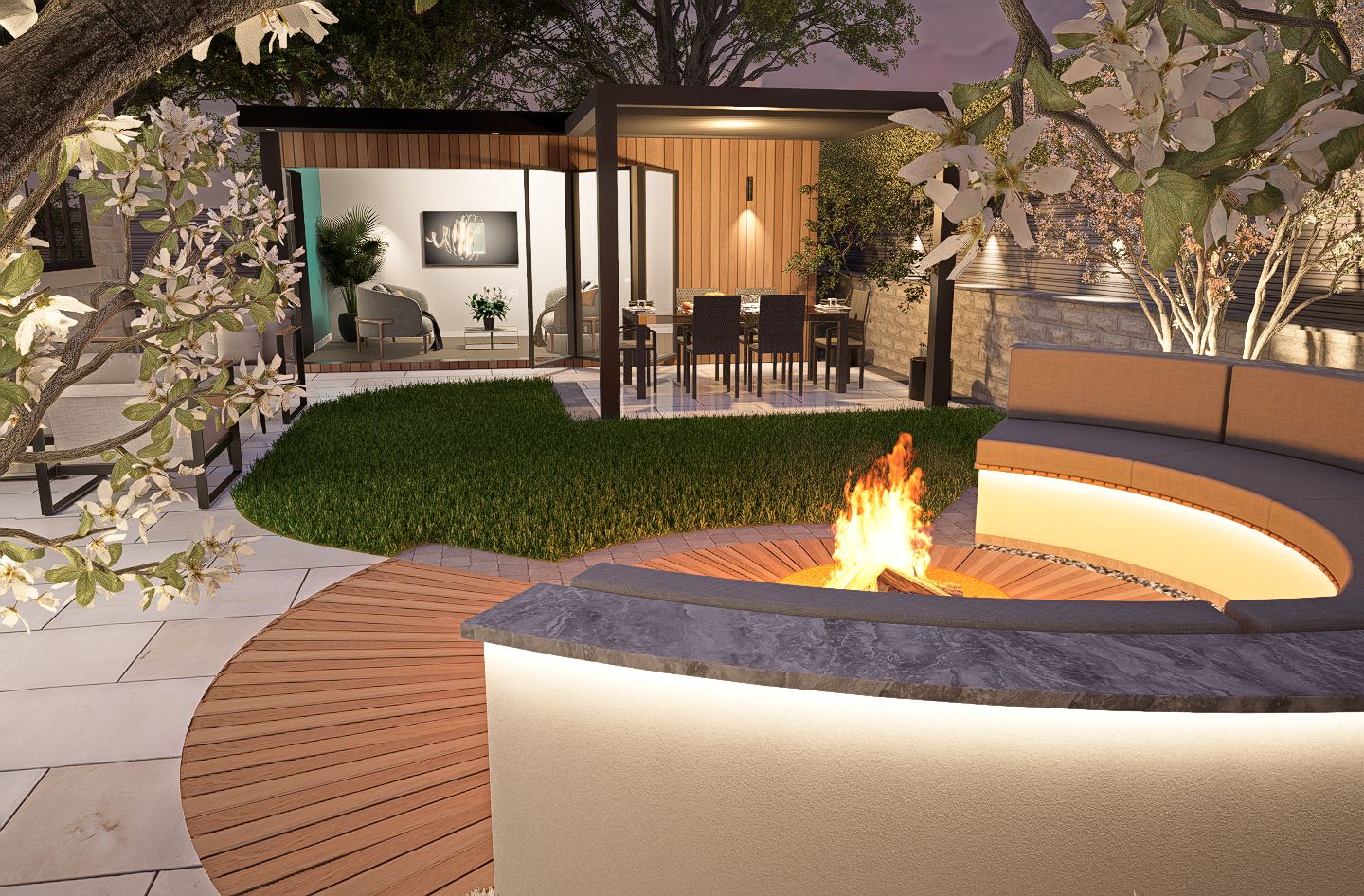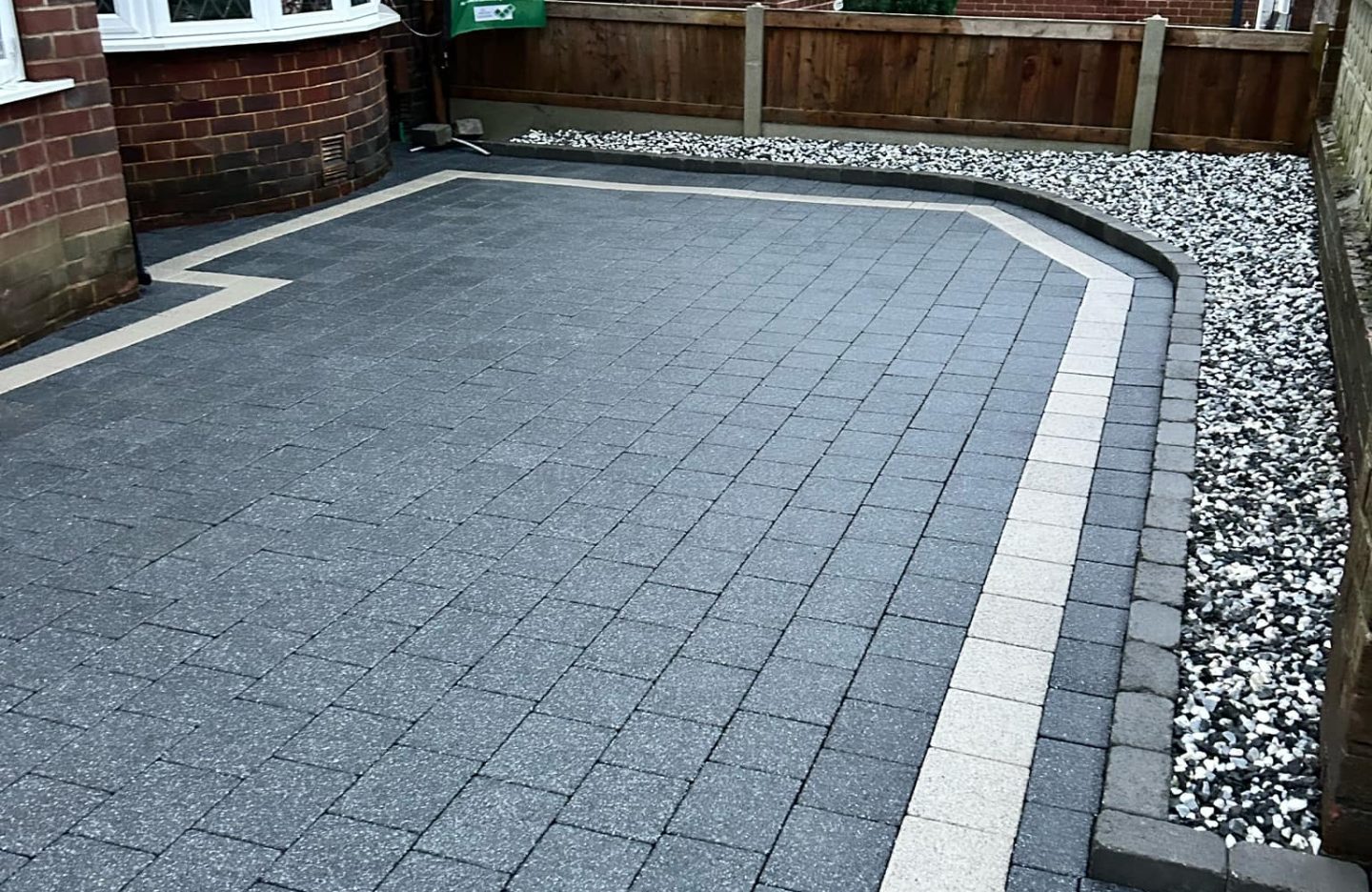WELCOME TO GMH LANDSCAPING LTD
Professional Landscape Gardener in Manchester
We transform outdoor spaces across Manchester with expert landscaping—whether you need a full garden makeover, new decking, stylish fencing, or an outdoor kitchen.
WELCOME TO GMH LANDSCAPING LTD
Professional Landscape Gardener in Manchester
We transform outdoor spaces across Manchester with expert landscaping—whether you need a full garden makeover, new decking, stylish fencing, or an outdoor kitchen.
Visualise Your Garden Before a Single Spade Hits the Ground
Our advanced 3D garden design service helps you make confident choices by showing you exactly how your outdoor space will look — before work begins. With lifelike renderings and virtual walkthroughs, you can explore every detail, adjust layouts, and plan with clarity.
Years Experience
Tailored Visual Plans
We build detailed 3D models of your garden design, helping you see the layout, materials, and features from every angle.
Informed Decisions
By previewing your garden in 3D, you’ll know exactly what to expect — no guesswork, no surprises, just confidence in the plan.
Smooth Project Delivery
Our 3D design process reduces delays and changes, keeping your project on time and on budget.
We’re proud to work with some of the industry’s most reputable suppliers.
Browse the brochures below to see the premium products we use to bring your outdoor spaces to life.
From design to build, we cover it all — just take a look at what we do.
in Manchester.
Landscape Design Services
We create beautiful, functional outdoor spaces tailored to your lifestyle and Manchester’s unique environment.

in Manchester.
Hardscaping Services
From patios to paths, we build durable, low-maintenance surfaces that improve layout and usability.

in Manchester.
Garden Paving and Driveways
Upgrade your outdoor surfaces with paving and driveways designed for style, drainage, and durability.

in Manchester.
Lawn Installation Services
Enjoy a lush, easy-care lawn with professional turfing or artificial grass suited to Manchester’s climate.

in Manchester.
Decking Installation Services
We install safe, stylish decking that stands up to the elements and enhances your garden space.

A Simple 3-Step Process
We make your outdoor transformation easy with our clear and proven 3-step approach—designed to deliver great results with minimal hassle.
For Call
+44 7700 170822
For Consultation
enquires@gmh-landscaping.co.uk
01.
Schedule a Consultation
Get in touch today and arrange a consultation. We’ll listen carefully to your goals, discuss your ideas, and provide expert advice to bring your vision to life.
02.
Receive Your Customised Plan
After our site visit, you’ll receive a detailed, clear proposal outlining the design, materials, timeline, and pricing tailored specifically to your project.
03.
Set a schedule to meet online or offline
Our professional team will complete your landscaping project promptly and meticulously. Relax and enjoy your beautiful new outdoor space, perfect for entertaining, relaxing, and enhancing your home’s value.
Let’s Explore the Possibilities Together
Whether you’re ready to start your project or still exploring ideas, we’d love to hear from you.
Contact GMH Landscaping Ltd todayand take the first step toward your perfect outdoor space.
Or
Affordable solutions for every budget
We believe top-quality landscaping should be within reach for every homeowner. That’s why we offer tailored packages designed to deliver exceptional results—no matter your budget.

Clients
"Really pleased with our garden transformation from Gregg & Lewis. Kept informed throughout the whole process and would not hesitate in recommending GMH"
Garden Makeovers
Whether it’s a small refresh or a full transformation, we create stunning garden spaces that fit your lifestyle and budget.
Custom designs
Quality materials
Flexible pricing
Popular
Composite Decking Installation
Add value and functionality to your garden with durable, stylish decking built to last.
Low-maintenance solutions
Modern finishes
Installed with precision
Frequently asked question
Project timelines vary depending on the scale and complexity. Smaller projects can typically be completed within a few days, while larger projects like bespoke garden rooms or full garden renovations might take several weeks. We provide clear timelines during your consultation.
Yes, all our projects come with a quality workmanship guarantee. Our materials are sourced from reputable suppliers, ensuring durability and longevity.
Absolutely! Our experienced designers specialise in creating custom landscaping designs tailored specifically to your style, needs, and budget. We'll guide you through every step to ensure your complete satisfaction.



